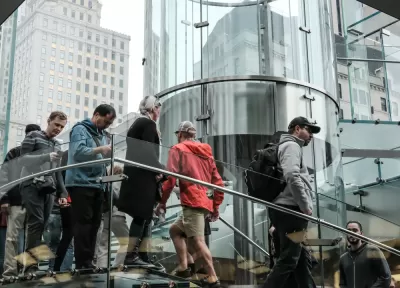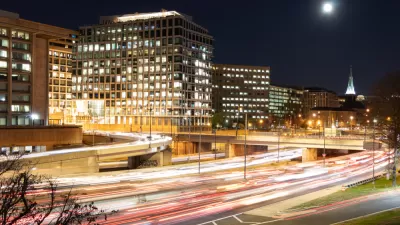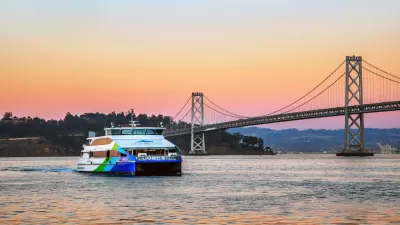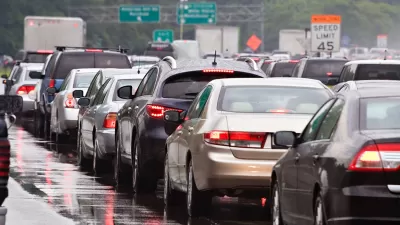The number of telecommuters has increased dramatically since 2000.

Telecommuting is now more common that walking or biking to work, according to an article by Christopher Groskopf. According to Groskopf, "a record 2.6% of American employees now go to their jobs without ever leaving their houses. That’s more than walk and bike to work combined."
Groskopf is reporting analysis by Quartz of U.S. Census and American Community Survey data. "The data show that telecommuting has grown faster than any other way of getting to work—up 159% since 2000."
The data also show that telecommuters tend to be high earners, with an average annual income of $80,000. Groskopf concludes the article by speculating on the impact telecommuting trends could have on urban areas if they continue.
FULL STORY: More Americans now work full-time from home than walk and bike to office jobs

Planetizen Federal Action Tracker
A weekly monitor of how Trump’s orders and actions are impacting planners and planning in America.

San Francisco's School District Spent $105M To Build Affordable Housing for Teachers — And That's Just the Beginning
SFUSD joins a growing list of school districts using their land holdings to address housing affordability challenges faced by their own employees.

The Tiny, Adorable $7,000 Car Turning Japan Onto EVs
The single seat Mibot charges from a regular plug as quickly as an iPad, and is about half the price of an average EV.

Seattle's Plan for Adopting Driverless Cars
Equity, safety, accessibility and affordability are front of mind as the city prepares for robotaxis and other autonomous vehicles.

As Trump Phases Out FEMA, Is It Time to Flee the Floodplains?
With less federal funding available for disaster relief efforts, the need to relocate at-risk communities is more urgent than ever.

With Protected Lanes, 460% More People Commute by Bike
For those needing more ammo, more data proving what we already knew is here.
Urban Design for Planners 1: Software Tools
This six-course series explores essential urban design concepts using open source software and equips planners with the tools they need to participate fully in the urban design process.
Planning for Universal Design
Learn the tools for implementing Universal Design in planning regulations.
Smith Gee Studio
City of Charlotte
City of Camden Redevelopment Agency
City of Astoria
Transportation Research & Education Center (TREC) at Portland State University
US High Speed Rail Association
City of Camden Redevelopment Agency
Municipality of Princeton (NJ)





























